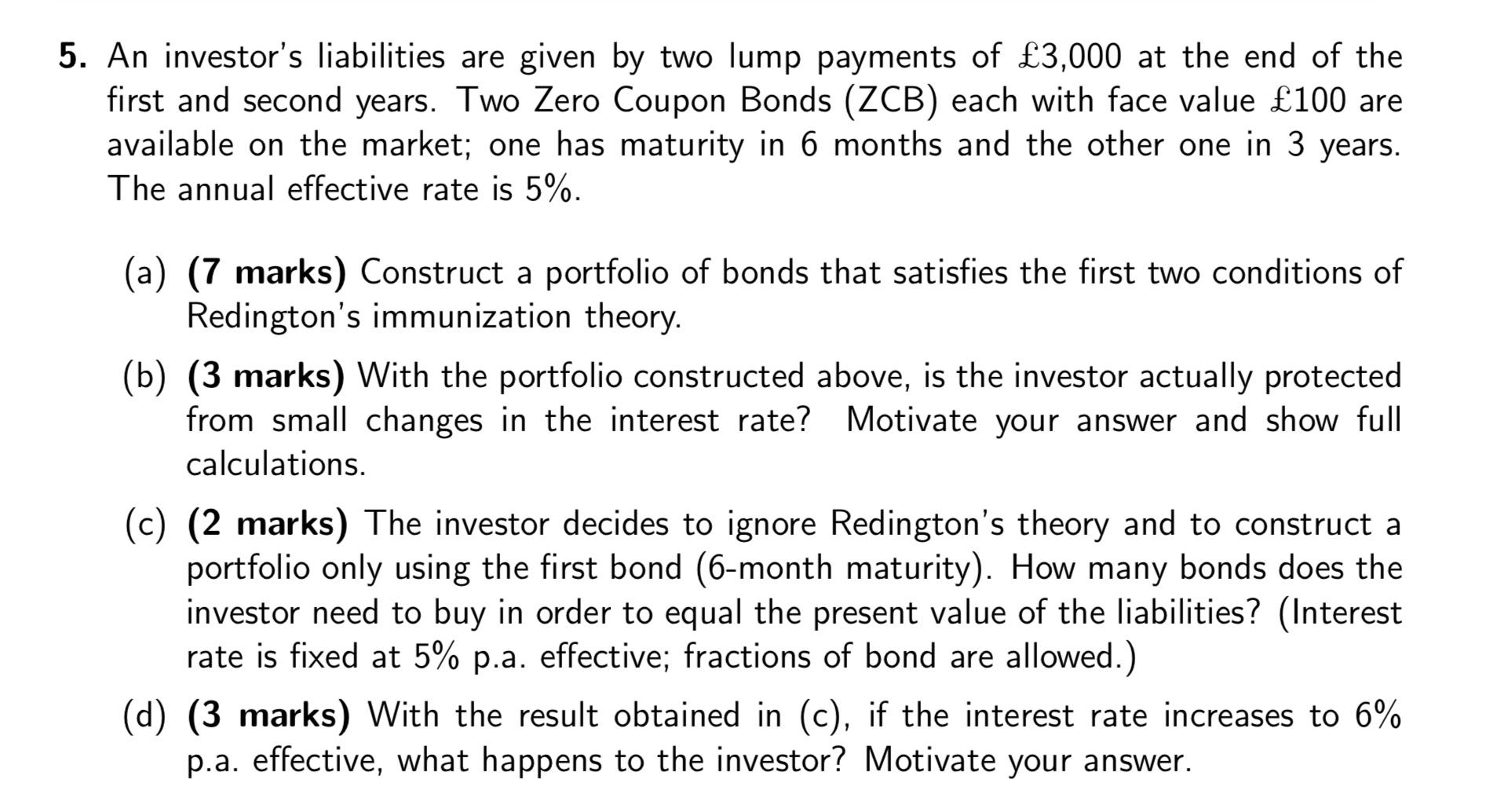
5. An investor's liabilities are given by two lump payments of 3,000 at the end of the first and second years. Two Zero Coupon Bonds (ZCB) each with face value 100 are available on the market; one has maturity in 6 months and the other one in 3 years. The annual effective rate is 5%. (a) (7 marks) Construct a portfolio of bonds that satisfies the first two conditions of Redington's immunization theory. (b) (3 marks) With the portfolio constructed above, is the investor actually protected from small changes in the interest rate? Motivate your answer and show full calculations. (c) (2 marks) The investor decides to ignore Redington's theory and to construct a portfolio only using the first bond (6-month maturity). How many bonds does the investor need to buy in order to equal the present value of the liabilities? (Interest rate is fixed at 5% p.a. effective; fractions of bond are allowed.) (d) (3 marks) With the result obtained in (c), if the interest rate increases to 6% p.a. effective, what happens to the investor? Motivate your answer. 5. An investor's liabilities are given by two lump payments of 3,000 at the end of the first and second years. Two Zero Coupon Bonds (ZCB) each with face value 100 are available on the market; one has maturity in 6 months and the other one in 3 years. The annual effective rate is 5%. (a) (7 marks) Construct a portfolio of bonds that satisfies the first two conditions of Redington's immunization theory. (b) (3 marks) With the portfolio constructed above, is the investor actually protected from small changes in the interest rate? Motivate your answer and show full calculations. (c) (2 marks) The investor decides to ignore Redington's theory and to construct a portfolio only using the first bond (6-month maturity). How many bonds does the investor need to buy in order to equal the present value of the liabilities? (Interest rate is fixed at 5% p.a. effective; fractions of bond are allowed.) (d) (3 marks) With the result obtained in (c), if the interest rate increases to 6% p.a. effective, what happens to the investor? Motivate your







